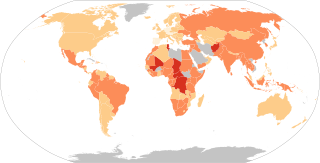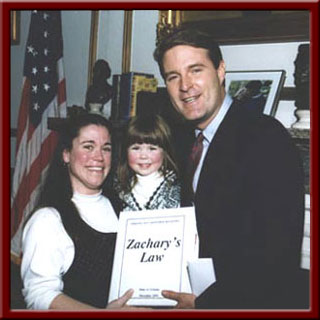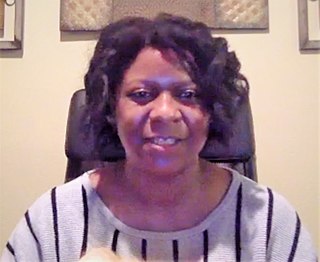Sexual assault is an act in which one intentionally sexually touches another person without that person's consent, or coerces or physically forces a person to engage in a sexual act against their will. It is a form of sexual violence that includes child sexual abuse, groping, rape, drug facilitated sexual assault, and the torture of the person in a sexual manner.

Megan's Law is the name for a federal law in the United States requiring law enforcement authorities to make information available to the public regarding registered sex offenders. Laws were created in response to the murder of Megan Kanka. Federal Megan's Law was enacted as a subsection of the Jacob Wetterling Crimes Against Children and Sexually Violent Offender Registration Act of 1994, which merely required sex offenders to register with local law enforcement. Since only a few states required registration prior to Megan's death, the state-level legislation to bring states in compliance—with both the registration requirement of Jacob Wetterling Act and community notification required by federal Megan's Law—were crafted simultaneously and are often referred to as "Megan's Laws" of individual states. Thus, the federal Megan's Law refers to community notification, whereas state-level "Megan's Law" may refer to both sex offender registration and community notification.

Juvenile delinquency, also known as juvenile offending, is the act of participating in unlawful behavior as a minor or individual younger than the statutory age of majority. The term delinquent usually refers to juvenile delinquency, and is also generalised to refer to a young person who behaves an unacceptable way.
A sex offender is a person who has committed a sex crime. What constitutes a sex crime differs by culture and legal jurisdiction. The majority of convicted sex offenders have convictions for crimes of a sexual nature; however, some sex offenders have simply violated a law contained in a sexual category. Some of the serious crimes which usually result in a mandatory sex-offender classification are sexual assault, statutory rape, bestiality, child sexual abuse, incest, rape, and sexual imposition.

Rape is a type of sexual assault involving sexual intercourse or other forms of sexual penetration carried out against a person without their consent. The act may be carried out by physical force, coercion, abuse of authority, or against a person who is incapable of giving valid consent, such as one who is unconscious, incapacitated, has an intellectual disability, or is below the legal age of consent. The term rape is sometimes used interchangeably with the term sexual assault.
Sexual violence refers to a range of completed or attempted sexual acts in which the affected party does not or is unable to consent. Theories on the causes of sexual violence are numerous and have come out of many different disciplines, such as women's studies, public health, and criminal justice. Proposed causes include military conquest, socioeconomics, anger, power, sadism, traits, ethical standards, laws, and evolutionary pressures. Most of the research on the causes of sexual violence has focused on male offenders.

Child sexual abuse (CSA), also called child molestation, is a form of child abuse in which an adult or older adolescent uses a child for sexual stimulation. Forms of child sexual abuse include engaging in sexual activities with a child, indecent exposure, child grooming, and child sexual exploitation, such as using a child to produce child pornography.

Domestic violence is violence or other abuse that occurs in a domestic setting, such as in a marriage or cohabitation. Domestic violence is often used as a synonym for intimate partner violence, which is committed by one of the people in an intimate relationship against the other person, and can take place in relationships or between former spouses or partners. In its broadest sense, domestic violence also involves violence against children, parents, or the elderly. It can assume multiple forms, including physical, verbal, emotional, economic, religious, reproductive, financial abuse, or sexual abuse. It can range from subtle, coercive forms to marital rape and other violent physical abuse, such as choking, beating, female genital mutilation, and acid throwing that may result in disfigurement or death, and includes the use of technology to harass, control, monitor, stalk or hack. Domestic murder includes stoning, bride burning, honor killing, and dowry death, which sometimes involves non-cohabitating family members. In 2015, the United Kingdom's Home Office widened the definition of domestic violence to include coercive control.
A sex offender registry is a system in various countries designed to allow government authorities to keep track of the activities of sex offenders, including those who have completed their criminal sentences. Sex offender registration is usually accompanied by residential address notification requirements. In many jurisdictions, registered sex offenders are subject to additional restrictions, including on housing. Those on parole or probation may be subject to restrictions that do not apply to other parolees or probationers. These may include restrictions on being in the presence of underage persons, living in proximity to a school or day care center, owning toys or items targeted towards children, or using the Internet. Sex offender registries exist in many English-speaking countries, including Australia, Canada, New Zealand, the United States, Trinidad and Tobago, Jamaica, South Africa, the United Kingdom, and the Republic of Ireland. The United States is the only country that allows public access to the sex offender registry; all other countries in the English-speaking world have sex offender registries only accessible by law enforcement.
Research published from 2000 to 2020 illustrates increased prevalence rates of sexual violence against people with intellectual disabilities, compared to the general population.:61 The World Health Organization (WHO) funded a study which concluded that 15% of the adult population worldwide in 2012 had a disability, putting them at increased risk of physical, sexual, and intimate partner violence. Of that 15%, 6.1% or an estimated 7,008,716,704 adults worldwide had intellectual disability with 5.5% experiencing sexual violence. In another 2012 report, the WHO found that worldwide, children with intellectual disabilities experienced a 4.6 times greater risk of sexual violence than those without disability.
Vernon Lewis Quinsey is a Canadian psychologist. He has studied violent crime offenders, sex offenders, sexually violent predators, juvenile delinquency, and ways to predict, assess, and manage individuals with these tendencies. He testified in court that a rapist, Allen Edward Bullock, was "erotically attracted to that kind of behavior".

Robin J. Wilson is a Canadian psychologist, specializing in work on sex offenders.

The management of domestic violence deals with the treatment of victims of domestic violence and preventing repetitions of such violence. The response to domestic violence in Western countries is typically a combined effort between law enforcement, social services, and health care. The role of each has evolved as domestic violence has been brought more into public view.
Mary P. Koss is an American Regents' Professor at the University of Arizona, Mel and Enid Zuckerman College of Public Health in Tucson, Arizona. Her best known works have been in the areas of gender-based violence and restorative justice.

Gender responsive approach for girls in the juvenile justice system represents an emerging trend in communities and courts throughout the United States, Australia and Latin America, as an increasing number of girls are entering the juvenile justice system. A gender responsive approach within the juvenile justice system emphasizes considering the unique circumstances and needs of females when designing juvenile justice system structures, policies, and procedures.

Karen Franklin is an American forensic psychologist. For her doctoral dissertation, she conducted research on anti-gay violence. She has also published commentaries about sex crimes, primarily expressing her opposition to the use of the hebephilia and other diagnoses in sexually violent predator regulations. She received the 2012 Distinguished Scientific Achievement Award in Psychology and the Monette-Horwitz Trust Award in 2001.

Sex offender registries in the United States exist at both the federal and state levels. Registries contain information about persons convicted of sexual offenses for law enforcement and public notification purposes. All 50 states and the District of Columbia maintain sex offender registries that are open to the public via websites; most information on offenders is visible to the public. Public disclosure of offender information varies between the states depending on offenders' designated tier, which may also vary from state to state, or risk assessment result. According to NCMEC, as of 2016 there were 859,500 registered sex offenders in United States.

The movement to reform sex offender laws in the United States describes the efforts of individuals and organizations to change state laws requiring Sex offender registries in the United States.

Sex offender registration and notification (SORN) laws in the United States are widely accepted, with supporters believing that disclosing the location of sex offenders residence improves the public's ability to guard themselves and their children from sexual victimization. Despite this wide public acceptance, empirical observations do not uniformly support this belief.

Apryl A. Alexander is an American clinical and forensic psychologist who is an associate professor at the University of Denver. Alexander directs students at the Denver Forensic Institute for Research, Service and Training, and engages in clinical psychology practice. She is co-founder of the University of Denver's Prison Arts Initiative where incarcerated individuals engage in a therapeutic, educational arts curricula.











